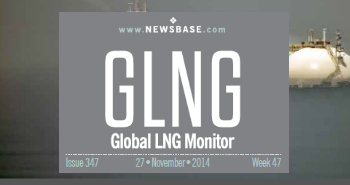BP: oil demand and emissions will peak in 2025

Oil super major BP's latest outlook on global energy trends suggests a potential peak in worldwide oil demand as early as next year, a development that could mark a significant turning point in global carbon emissions by the mid-2020s.
This projection is underpinned by an anticipated surge in the adoption of renewable energy sources such as wind and solar power.
According to the latest edition of BP's annual and comprehensive Energy Outlook report, oil consumption is expected to gradually increase, reaching around 102mn barrels per day (bpd) by 2025 across both of its outlined scenarios.
The world is in an “energy addition phase”, said Spencer Dale, BP’s chief economist. Instead, it needs to pivot to a “substitution phase” to avoid the worst effects of climate change, said the report.
“The longer it takes for the world to move to a rapid and sustained energy transition, the greater the risk of a costly and disorderly adjustment,” said Dale.
In one scenario, BP maps out a continuation of the current trajectory of the global energy transition, driven by ongoing technological advancements and policy initiatives.
In the other scenario, the report outlines a pathway specifically designed to achieve global net zero emissions by 2050, necessitating a more aggressive deployment of renewable energy and energy efficiency measures.
Despite the differences in approach, both scenarios predict a peak in carbon emissions by the middle of this decade, bolstered by the rapid expansion and increasing cost competitiveness of renewable energy technologies.
Under the current trajectory, oil consumption is projected to decrease steadily over the latter half of the forecast period, reaching approximately 75mn bpd by 2050. By contrast, in the net-zero scenario, the decline in oil demand is expected to be more pronounced, plummeting to between 25mn and 30mn bpd by 2050.
To reach a goal of net-zero carbon emissions, the consumption of oil would have to drop by as much as 70% by mid-century to about 30mn bpd, said the report.
The diminishing use of oil in road transport by the middle of next decade is offset in the current trajectory scenario by more use of oil as a feedstock, such as in the petrochemicals sector.
The report also highlights divergent futures for natural gas demand.
In the net-zero emissions scenario, BP projects that natural gas usage will peak in the mid-2020s before declining to half of 2022 levels by 2050. Conversely, under current trends, natural gas demand is expected to continue growing, expanding by approximately 20% by 2050.
This divergence underscores the critical choices facing global energy policy-makers in balancing energy security, economic growth and environmental sustainability.
BP's analysis extends to the liquefied natural gas (LNG) market, where substantial growth in demand is anticipated. The report predicts increases of 40% and 30% above 2022 levels in LNG demand in the respective scenarios, reflecting ongoing shifts in global energy consumption patterns and infrastructure investments. However, the report cautions that these projections are contingent on numerous factors, including geopolitical developments, technological breakthroughs and policy frameworks.
The capacity of wind and solar escalates eight-fold by mid-century in the current trajectory scenario, and by as much as 14 in net zero compared with 2022 levels. Developed economies and China will see most new wind and solar capacity by 2035 – about 30-45% – for both of the scenarios.
Looking ahead, BP's outlook underlines the potential risks associated with exceeding carbon budgets and climate targets if global oil consumption in the 2030s surpasses current expectations.
Such a scenario could undermine efforts to mitigate climate change and achieve long-term sustainability goals.
Despite these challenges, BP acknowledges the enduring role of oil in the global energy mix over the next decade to decade and a half, citing ongoing demand from sectors such as transportation and petrochemicals.
Recently, BP faced criticism from environmental advocates after revising its pledge to reduce oil and gas production. Originally aiming for a 40% reduction by 2030 compared to 2019 levels, the company scaled back to a 25% decline following shifts in global energy markets prompted by geopolitical events.
This decision underscores the complex interplay between energy policy, market dynamics and environmental imperatives in shaping future energy scenarios.
BP's comprehensive outlook on global energy trends provides insight into the evolving landscape of energy supply, demand and sustainability. The report underscores the urgency of accelerating the transition to low-carbon technologies while navigating the complexities of global energy markets and geopolitical dynamics.
As governments, businesses and civil society grapple with these challenges, BP's projections serve as a critical reference point for shaping effective energy policies that can achieve both economic prosperity and environmental stewardship in the decades to come.












Follow us online